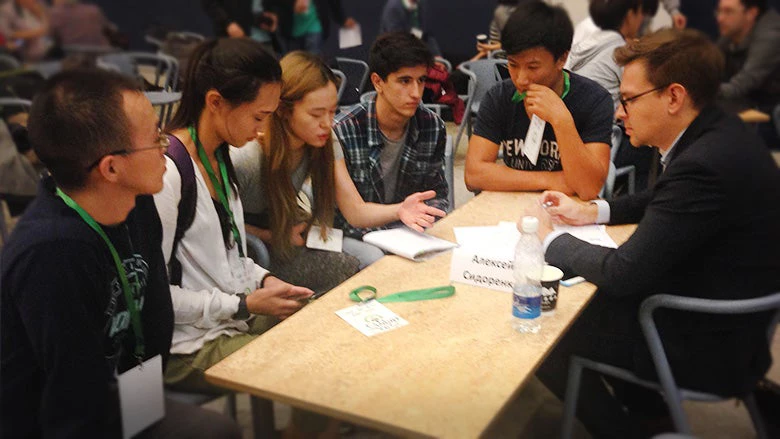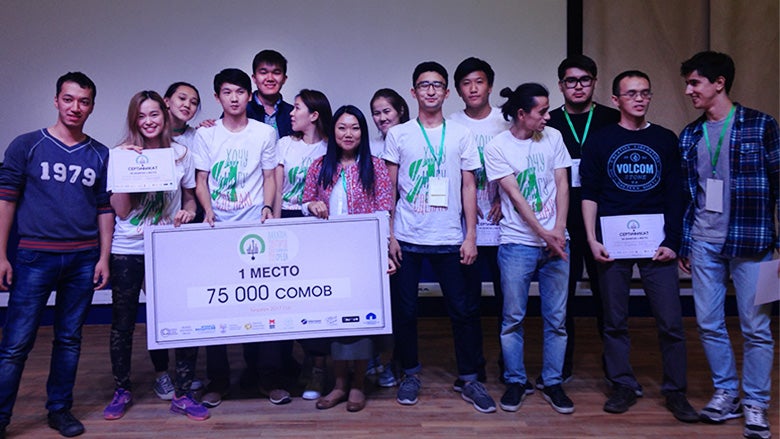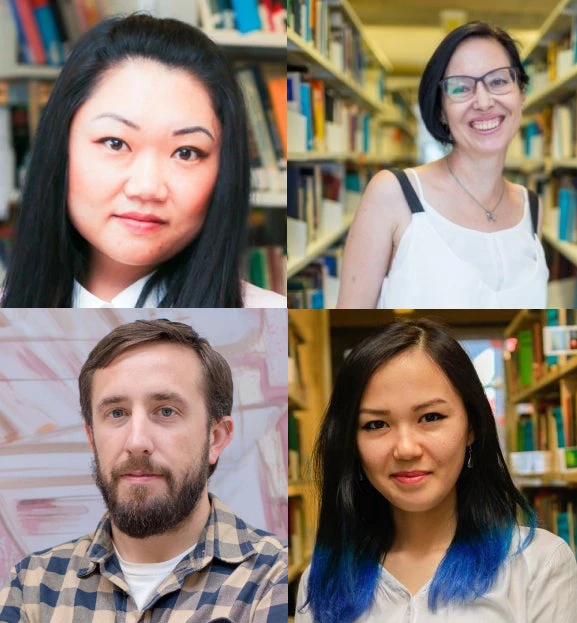
As we take part in the 16 Days of Activism Against Gender-Based Violence campaign over the coming weeks, we couldn’t be more excited about sharing an update than this one.
We recently brought a team of technologically savvy students together and worked hard for two days with very little sleep to develop an application to respond to sexual violence. The hard work paid off when our team was awarded first place in a Hackathon at the American University of Central Asia (AUCA).
This application is part of the SVRI and World Bank Group’s Development Marketplace for Innovation on Gender-Based Violence award funded project ‘Combatting Sexual Violence in Kyrgyzstan through Innovative Education and Information Technology.’ A big part of our project is to find innovative ways to address gender-based violence in Kyrgyzstan through technology.
From October 20 th to 22 nd 2017, we partnered with a group of AUCA students who form the group Neobis to take part in a Hackathon at AUCA. Hackathons are held worldwide, and bring together programmers and software engineers to come up with creative solutions to various social problems. Fifteen teams from throughout Bishkek took part in the event, with roughly 100 participants overall. The Hackathon’s theme was ‘A safe city and a safe environment,’ and sought to specifically address gender-based violence. We couldn’t have asked for a more relevant topic for our project.
Our team, Mamadnazar Shohkarimi, Bektursun Tagaev, Mukhamed Khasanza, Aidai Kazybekova and Sanira Madzhikova, developed an application designed to provide survivors of sexual violence with information and fast access to emergency services. The program was developed by a multi-disciplined team of coders, programmers and designers, as well as senior anthropology students to address the social and cultural aspects of sexual violence.
The first component of the application provides users with information on victims’ rights, the legal codes in Kyrgyzstan regarding sexual assault and violence, as well as information for support, crisis, and emergency services. The second component is a quick-text system that enables the user to text specific contacts an emergency message with the click of a button. The text message also includes the messenger’s location. This will assist people in vulnerable situations to get in touch with trusted contacts quickly and receive their assistance. The final component allows individuals to pin a location on a map where they felt unsafe, or where a crime occurred. The application will collect all of these pins, and load them onto a map that is available in the information section of the application. The aim of this map is to provide users with the ability to see which areas are unsafe.

Coming first in the Hackathon is both an honor as well as a statement about the strength of the project more broadly. It reaffirms our commitment to addressing and combatting sexual violence in Kyrgyzstan, and emphasizes the way that innovative technology can provide unique and important solutions to these issues. Furthermore, this victory will drive the project forward, and has provided us with a working application to continue developing. As we move forward, we will build on achievements made during the Hackathon to advance the project in a variety of ways.
One theme that emerged during the Hackathon was that technological advancements in responding to violence cannot exist without an associated education component. This resonated deeply with our team and the project’s goals, and encompasses the overarching ethos of our project, recognizing that no matter the technological advancements education is the fundamental key to change.
This blog was first published by the American University of Central Asia . Permission to publish by the World Bank was given by the authors.


Join the Conversation